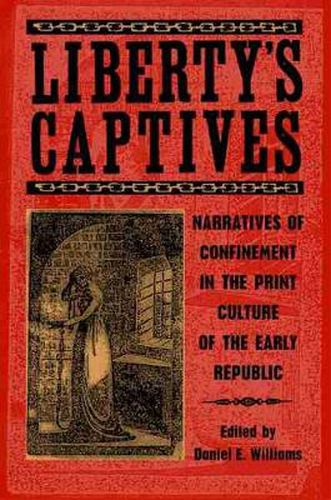Readings Newsletter
Become a Readings Member to make your shopping experience even easier.
Sign in or sign up for free!
You’re not far away from qualifying for FREE standard shipping within Australia
You’ve qualified for FREE standard shipping within Australia
The cart is loading…






An astonishing variety of captivity narratives emerged in the fifty years following the American Revolution; however, discussions about them have usually focused on accounts of Native American captivities. To most readers, then, captivity narratives are synonymous with ‘godless savages,’ the vast frontier, and the trials of kidnapped settlers. This anthology, the first to bring together various types of captivity narratives in a comparative way, broadens our view of the form as it shows how the captivity narrative, in the nation-building years from 1770 to 1820, helped to shape national debates about American liberty and self-determination. Included here are accounts by Indian captives, but also prisoners of war, slaves, victims of pirates and Barbary corsairs, impressed sailors, and shipwreck survivors. The volume’s seventeen selections have been culled from hundreds of such texts, edited according to scholarly standards, and reproduced with the highest possible degree of fidelity to the originals. Some selections are fictional or borrow heavily from other, true narratives; all are sensational. Immensely popular with American readers, they were also a lucrative commodity that helped to catalyze the explosion of print culture in the early Republic. As Americans began to personalize the rhetoric of their recent revolution, captivity narratives textually enacted graphic scenes of defiance toward deprivation, confinement, and coercion. At a critical point in American history they helped make the ideals of nationhood real to common citizens.
$9.00 standard shipping within Australia
FREE standard shipping within Australia for orders over $100.00
Express & International shipping calculated at checkout
Stock availability can be subject to change without notice. We recommend calling the shop or contacting our online team to check availability of low stock items. Please see our Shopping Online page for more details.
An astonishing variety of captivity narratives emerged in the fifty years following the American Revolution; however, discussions about them have usually focused on accounts of Native American captivities. To most readers, then, captivity narratives are synonymous with ‘godless savages,’ the vast frontier, and the trials of kidnapped settlers. This anthology, the first to bring together various types of captivity narratives in a comparative way, broadens our view of the form as it shows how the captivity narrative, in the nation-building years from 1770 to 1820, helped to shape national debates about American liberty and self-determination. Included here are accounts by Indian captives, but also prisoners of war, slaves, victims of pirates and Barbary corsairs, impressed sailors, and shipwreck survivors. The volume’s seventeen selections have been culled from hundreds of such texts, edited according to scholarly standards, and reproduced with the highest possible degree of fidelity to the originals. Some selections are fictional or borrow heavily from other, true narratives; all are sensational. Immensely popular with American readers, they were also a lucrative commodity that helped to catalyze the explosion of print culture in the early Republic. As Americans began to personalize the rhetoric of their recent revolution, captivity narratives textually enacted graphic scenes of defiance toward deprivation, confinement, and coercion. At a critical point in American history they helped make the ideals of nationhood real to common citizens.